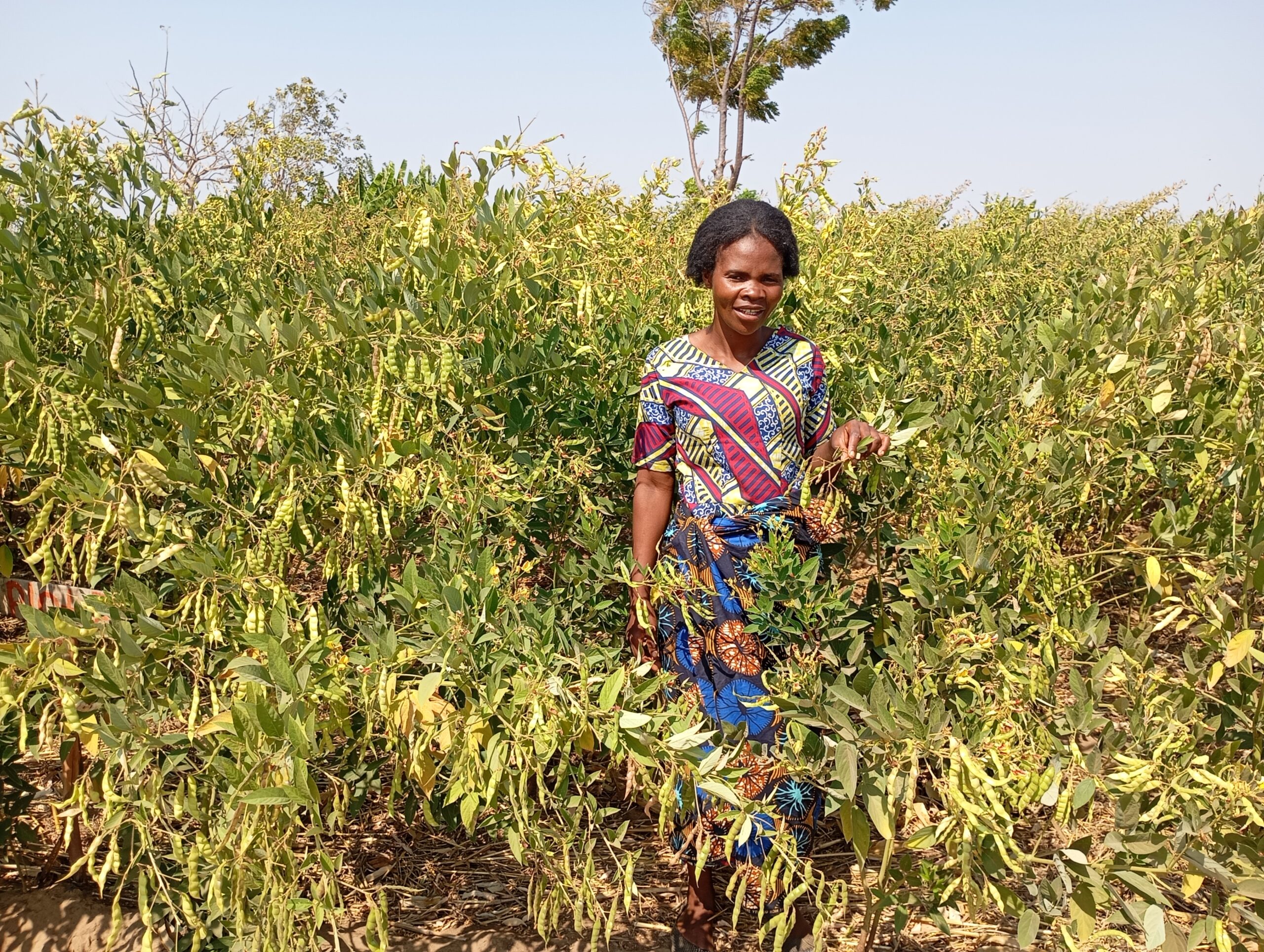
In Kasungu district, central Malawi, the livelihoods of smallholder farmers are increasingly threatened by the effects of climate change, such as erratic rainfall and drought, with conservative models predicting a 1.8% to 4.3% decline in annual rainfall between 2020 and 2029. The district’s subtropical climate brings sharp seasonal shifts, from cool winters to intense summer heat. However, farmers are increasingly worried about unpredictable rainfall patterns: early or late onset of the rainy season, in-season droughts, and sudden dry spells that shorten the growing period. Rising temperatures and occasional flooding further complicate agricultural planning. The fate of their fields directly affects their livelihoods. Degraded soils, limited access to inputs, and ongoing deforestation further constrain agricultural productivity. With few alternative income sources and dependency on rainfed agriculture, most households remain exposed to shocks, deepening poverty and food insecurity. It is imperative for farmers to diversify from the traditional maize monocropping, but addressing these challenges requires a shift from isolated interventions to coordinated, community-wide strategies.
Sarai Mkanasi, a second-season mother farmer in the Mtunthama Extension Planning Area (EPA) of Kasungu district, is leading a shift and experimenting with mixed farming systems. She participates as a trial farmer under the CGIAR Sustainable Farming Science Program (SFSP), which embraces diversified cropping systems, harnessing crop-livestock synergies while minimizing trade-offs. Through the participatory “mother-and-baby trial” approach, she hosts a demonstration plot that integrates a variety of food crops and livestock feed production options, promoting practical, science-backed solutions that align with the needs of smallholders.
Before joining the program, Sarai’s fields reflected the norm in her community: continuous maize monocrops, little to no use of crop residues, routine tillage involving annual ridge formation and limited productivity. Legumes like soybean, lablab, and cowpea, a common feature in other parts of Malawi, had never featured on her farm. While livestock were present, they were not integrated into her cropping system. Crop residues were either burned, left unused, or grazed by livestock roaming during the dry off-season. Even though she had seen these crops firsthand during visits to Southern Malawi, she had never considered planting them herself. That narrative changed with the active support from the SFSP, which paired scientific guidance with a strong local extension network. Sarai is not only transforming her own fields but inspiring an entire community of baby farmers to embrace innovative mixed farming practices.
Sarai began intercropping legumes with maize, cultivated fodder for her livestock, and applied crop residues back into the system to enrich the soil. These were unfamiliar practices in her area, and many doubted her approach. Some farmers openly dismissed her efforts entirely, while others even mocked her approach. But she remained committed.
Her patience paid off when a mid-season dry spell struck. While neighboring fields wilted under the dry conditions, her crops remained healthy and vibrant—clear evidence of the effectiveness of residue application. The practice not only helped retain moisture and improve soil health but also significantly reduced her weeding time, freeing her to focus on other essential farming activities. Intercrops with the leafy lablab were particularly impressive, and all her neighbors became curious.
Contrary to the skepticism at the beginning of the season, farmers from across the community now visit her fields, eager to learn from her success. In the current season, Sarai’s second season, she has inspired other farmers who are implementing subsets of what she tried last season on their own plots. What was once considered unconventional has become a model for agricultural innovation, attracting both experienced farmers and newcomers to mixed farming. Sarai’s guidance now extends well beyond her immediate group of fellow farmers to any farmer willing to listen and learn from her practices.
She openly shares her story, hoping to encourage more farmers in the community to adopt these practices, to strengthen food security and resilience. With rainfed agriculture growing increasingly unpredictable, she understands that sustainable farming methods are key to ensuring long-term prosperity for smallholder farmers.
Through SFSP, she has shown that innovation can thrive even in traditional farming landscapes. By effectively demonstrating the advantages, adaptability, and simplicity of mixed farming systems, she has made it easy for others to observe and adopt these techniques. As more farmers seek her guidance, mixed farming practices continue to spread, fostering a future of sustainability and resilience across Kasungu and beyond.
Sarai is not just a farmer; she is a mentor, a leader, and a catalyst for change in her community. She has cultivated not only thriving crops but also a spirit of resilience and transformation among her fellow farmers.

 Nutrition, health and food security
Nutrition, health and food security